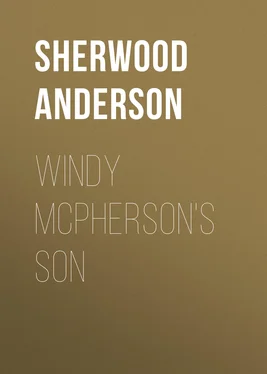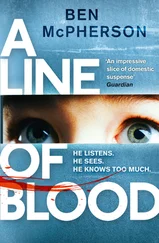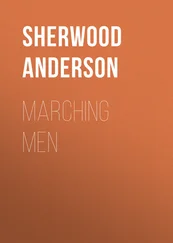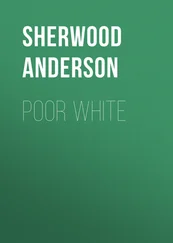Sherwood Anderson - Windy McPherson's Son
Здесь есть возможность читать онлайн «Sherwood Anderson - Windy McPherson's Son» — ознакомительный отрывок электронной книги совершенно бесплатно, а после прочтения отрывка купить полную версию. В некоторых случаях можно слушать аудио, скачать через торрент в формате fb2 и присутствует краткое содержание. Издательство: Иностранный паблик, Жанр: foreign_prose, literature_20, foreign_antique, на английском языке. Описание произведения, (предисловие) а так же отзывы посетителей доступны на портале библиотеки ЛибКат.
- Название:Windy McPherson's Son
- Автор:
- Издательство:Иностранный паблик
- Жанр:
- Год:неизвестен
- ISBN:нет данных
- Рейтинг книги:5 / 5. Голосов: 1
-
Избранное:Добавить в избранное
- Отзывы:
-
Ваша оценка:
- 100
- 1
- 2
- 3
- 4
- 5
Windy McPherson's Son: краткое содержание, описание и аннотация
Предлагаем к чтению аннотацию, описание, краткое содержание или предисловие (зависит от того, что написал сам автор книги «Windy McPherson's Son»). Если вы не нашли необходимую информацию о книге — напишите в комментариях, мы постараемся отыскать её.
Windy McPherson's Son — читать онлайн ознакомительный отрывок
Ниже представлен текст книги, разбитый по страницам. Система сохранения места последней прочитанной страницы, позволяет с удобством читать онлайн бесплатно книгу «Windy McPherson's Son», без необходимости каждый раз заново искать на чём Вы остановились. Поставьте закладку, и сможете в любой момент перейти на страницу, на которой закончили чтение.
Интервал:
Закладка:
When Sam was a twelve year old, barefooted boy upon the streets a kind of backwash of the wave of glory that had swept over Windy McPherson in the days of ‘61 lapped upon the shores of the Iowa village. That strange manifestation called the A. P. A. movement brought the old soldier to a position of prominence in the community. He founded a local branch of the organisation; he marched at the head of a procession through the streets; he stood on a corner and pointing a trembling forefinger to where the flag on the schoolhouse waved beside the cross of Rome, shouted hoarsely, “See, the cross rears itself above the flag! We shall end by being murdered in our beds!”
But although some of the hard-headed, money-making men of Caxton joined the movement started by the boasting old soldier and although for the moment they vied with him in stealthy creepings through the streets to secret meetings and in mysterious mutterings behind hands the movement subsided as suddenly as it had begun and only left its leader more desolate.
In the little house at the end of the street by the shores of Squirrel Creek, Sam and his sister Kate regarded their father’s warlike pretensions with scorn. “The butter is low, father’s army leg will ache to-night,” they whispered to each other across the kitchen table.
Following her mother’s example, Kate, a tall slender girl of sixteen and already a bread winner with a clerkship in Winney’s drygoods store, remained silent under Windy’s boasting, but Sam, striving to emulate them, did not always succeed. There was now and then a rebellious muttering that should have warned Windy. It had once burst into an open quarrel in which the victor of a hundred battles withdrew defeated from the field. Windy, half-drunk, had taken an old account book from a shelf in the kitchen, a relic of his days as a prosperous merchant when he had first come to Caxton, and had begun reading to the little family a list of names of men who, he claimed, had been the cause of his ruin.
“There is Tom Newman, now,” he exclaimed excitedly. “Owns a hundred acres of good corn-growing land and won’t pay for the harness on the backs of his horses or for the ploughs in his barn. The receipt he has from me is forged. I could put him in prison if I chose. To beat an old soldier!—to beat one of the boys of ‘61!—it is shameful!”
“I have heard of what you owed and what men owed you; you had none the worst of it,” Sam protested coldly, while Kate held her breath and Jane McPherson, at work over the ironing board in the corner, half turned and looked silently at the man and the boy, the slightly increased pallor of her long face the only sign that she had heard.
Windy had not pressed the quarrel. Standing for a moment in the middle of the kitchen, holding the book in his hand, he looked from the pale silent mother by the ironing board to the son now standing and staring at him, and, throwing the book upon the table with a bang, fled the house. “You don’t understand,” he had cried, “you don’t understand the heart of a soldier.”
In a way the man was right. The two children did not understand the blustering, pretending, inefficient old man. Having moved shoulder to shoulder with grim, silent men to the consummation of great deeds Windy could not get the flavour of those days out of his outlook upon life. Walking half drunk in the darkness along the sidewalks of Caxton on the evening of the quarrel the man became inspired. He threw back his shoulders and walked with martial tread; he drew an imaginary sword from its scabbard and waved it aloft; stopping, he aimed carefully at a body of imaginary men who advanced yelling toward him across a wheatfield; he felt that life in making him a housepainter in a farming village in Iowa and in giving him an unappreciative son had been cruelly unfair; he wept at the injustice of it.
The American Civil War was a thing so passionate, so inflaming, so vast, so absorbing, it so touched to the quick the men and women of those pregnant days that but a faint echo of it has been able to penetrate down to our days and to our minds; no real sense of it has as yet crept into the pages of a printed book; it yet wants its Thomas Carlyle; and in the end we are put to the need of listening to old fellows boasting on our village streets to get upon our cheeks the living breath of it. For four years the men of American cities, villages and farms walked across the smoking embers of a burning land, advancing and receding as the flame of that universal, passionate, death-spitting thing swept down upon them or receded toward the smoking sky-line. Is it so strange that they could not come home and begin again peacefully painting houses or mending broken shoes? A something in them cried out. It sent them to bluster and boast upon the street corners. When people passing continued to think only of their brick laying and of their shovelling of corn into cars, when the sons of these war gods walking home at evening and hearing the vain boastings of the fathers began to doubt even the facts of the great struggle, a something snapped in their brains and they fell to chattering and shouting their vain boastings to all as they looked hungrily about for believing eyes.
When our own Thomas Carlyle comes to write of our Civil War he will make much of our Windy McPhersons. He will see something big and pathetic in their hungry search for auditors and in their endless war talk. He will go filled with eager curiosity into little G. A. R. halls in the villages and think of the men who coming there night after night, year after year, told and re-told endlessly, monotonously, their story of battle.
Let us hope that in his fervour for the old fellows he will not fail to treat tenderly the families of those veteran talkers; the families that with their breakfasts and their dinners, by the fire at evening, through fast day and feast day, at weddings and at funerals got again and again endlessly, everlastingly this flow of war words. Let him reflect that peaceful men in corn-growing counties do not by choice sleep among the dogs of war nor wash their linen in the blood of their country’s foe. Let him, in his sympathy with the talkers, remember with kindness the heroism of the listeners.
On a summer day Sam McPherson sat on a box before Wildman’s grocery lost in thought. In his hand he held the little yellow account book and in this he buried himself, striving to wipe from his consciousness a scene being enacted before his eyes upon the street.
The realisation of the fact that his father was a confirmed liar and braggart had for years cast a shadow over his days and the shadow had been made blacker by the fact that in a land where the least fortunate can laugh in the face of want he had more than once stood face to face with poverty. He believed that the logical answer to the situation was money in the bank and with all the ardour of his boy’s heart he strove to realise that answer. He wanted to be a money-maker and the totals at the foot of the pages in the soiled yellow bankbook were the milestones that marked the progress he had already made. They told him that the daily struggles with Fatty, the long tramps through Caxton’s streets on bleak winter evenings, and the never-ending Saturday nights when crowds filled the stores, the sidewalks, and the drinking places, and he worked among them tirelessly and persistently were not without fruit.
Suddenly, above the murmur of men’s voices on the street, his father’s voice rose loud and insistent. A block further down the street, leaning against the door of Hunter’s jewelry store, Windy talked at the top of his lungs, pumping his arms up and down with the air of a man making a stump speech.
“He is making a fool of himself,” thought Sam, and returned to his bankbook, striving in the contemplation of the totals at the foot of the pages to shake off the dull anger that had begun to burn in his brain. Glancing up again, he saw that Joe Wildman, son of the grocer and a boy of his own age, had joined the group of men laughing and jeering at Windy. The shadow on Sam’s face grew heavier.
Читать дальшеИнтервал:
Закладка:
Похожие книги на «Windy McPherson's Son»
Представляем Вашему вниманию похожие книги на «Windy McPherson's Son» списком для выбора. Мы отобрали схожую по названию и смыслу литературу в надежде предоставить читателям больше вариантов отыскать новые, интересные, ещё непрочитанные произведения.
Обсуждение, отзывы о книге «Windy McPherson's Son» и просто собственные мнения читателей. Оставьте ваши комментарии, напишите, что Вы думаете о произведении, его смысле или главных героях. Укажите что конкретно понравилось, а что нет, и почему Вы так считаете.












